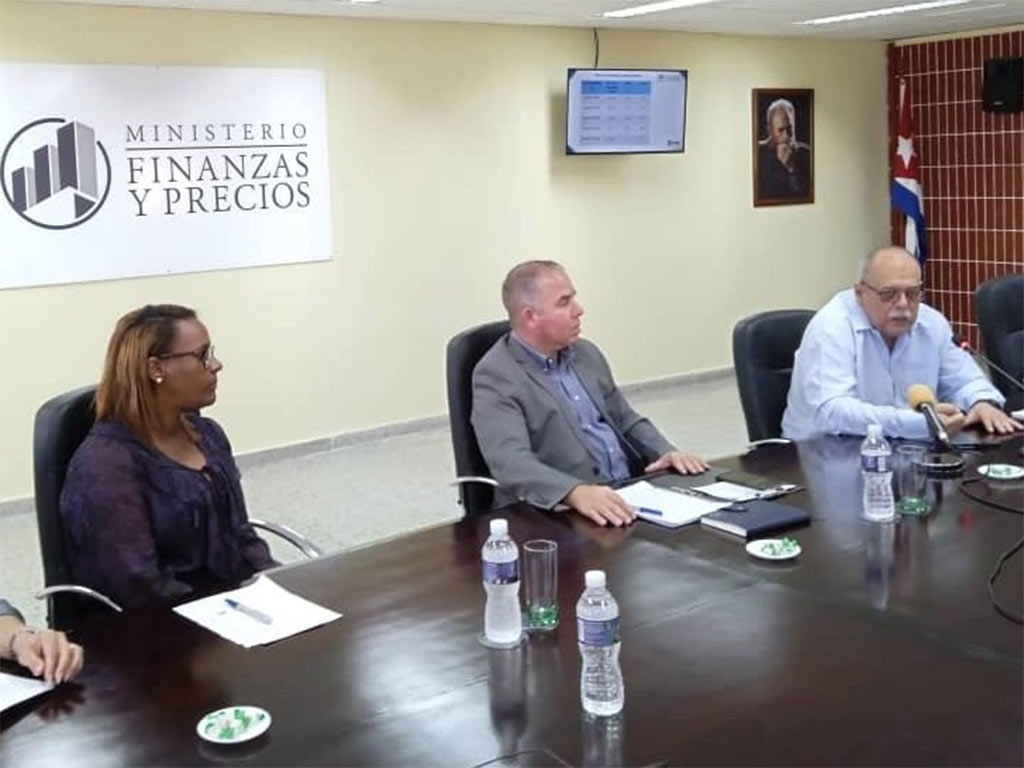By Marìa Julia Mayoral
Today began the application of higher retail gasoline and diesel rates, as well as for electricity consumers above 500 kilowatt-hours (Kw-h) monthly.
However, no changes have been made in the wholesale prices of fuels that benefit private cargo and passenger carriers, in order to avoid increasing the cost of services to population, stated the Minister.
Nationwide, over four million electricity customers are being registered and only 2.7% consume over 500 Kw-h as an annual average, even though proportion rises to 5.7% in the summer months (July and August).
In other words, the rate surge will impact on minority portion of consumers and the State will have to keep important reliefs for electricity service, as specified by the Energy and Mines Minister Vicente La O Levy.
Price adjustments, he added, are based on the pressing need to promote savings, since residential sector consumes 63% of the total electricity service.
According to both ministers, price update is in line with the increase in cost of imports given the global crisis derived from the Covid-19 pandemic, geopolitical conflicts affecting international trade and also the damages inherent to the economic, financial and commercial blockade imposed by the United States on Cuba for over 60 years.
Plus, fuel prices have not for years recognized the real costs incurred by the country, which led to the application of high allowances from the State Budget to cover the differences, which is unsustainable, Regueiro remarked.
According to La O Levy, Cuba´s fuel situation is “overly difficult”: Cuba, he said, consumes over 8 million tons per year and produces only about 3 million tons of oil equivalent (crude oil and gas).
Five million tons come from imports, but currently under adverse conditions, because supplies from traditional partners have decreased. Therefore, it was necessary to face the deficit with more expensive purchases in the international market and the annual value of the purchase exceeded two billion dollars, he indicated.
In 2023, he exemplified, gasoline imports amounted to 203,000 tons for an amount exceeding USD$390 million and, despite the surge in expenditures, it was not possible to cover the annual domestic demand estimated at around 360,000 tons.
Meanwhile, diesel imports dropped much more; from 942,000 tons in 2021 to 814,000 in 2022 and to 609,000 tons in 2023; this increased shortage compared to planned demand which, in 2023, was of 1,800,000 tons, he detailed.
In other words, Cuba could barely meet one third of its diesel needs for different productive purposes and services in 2023, to the detriment of key issues such as electricity generation, agriculture and industrial activity.
The goal of raising tariffs is not to raise money, we seek that prices also act as a market regulator. In particular, the State seeks to contain the increase in demand for gasoline associated with the national currency devaluation, said La O Levy.
At the same time, it was decided to introduce the gasoline and diesel sale in foreign currency as a source of income to finance the national replenishment of fuels and to encourage the entry of foreign investors interested in doing business in the energy sector, he explained.
Regarding practical aspects, the Economic Vice-President of Cimex, Tania Danay Vives, confirmed that payments will continue to be made exclusively through electronic means.
The new measures also include incentives for different actors of domestic economy, including the recent 50% reduction of customs duties on imports of raw materials, inputs and intermediate goods for productive processes, with a special focus on food and agricultural production.
The Government also approved salary increases to stimulate professionals in the Health and Education sectors, whose benefits are fundamental conquests for the Cuban people.
In late January, at a meeting of the Council of Ministers, Cuban President Miguel Díaz-Canel assured that the idea is to progress coherently in implementing a group of economic transformations and addressing the social, ideological and economic issues, with a comprehensive analysis.
The measures, he reiterated, “are necessary and cannot be postponed, because they correct deep distortions that hinder Cuba´s economic progress”.
pll/arc/mjm










